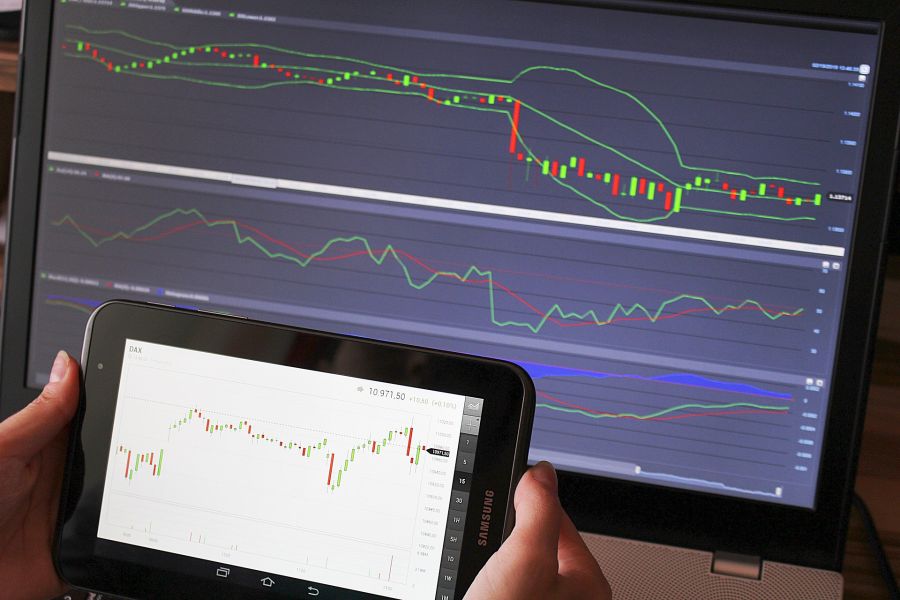Financial derivatives are important investment instruments that allow investors to manage their financial risks and speculate on future market movements. They derive value from underlying assets such as stocks, commodities, currencies, or interest rates.
There are various types of financial derivatives, such as forwards, futures, options, and swaps. Each type serves a different purpose and has unique features.

Risk Management
One of the primary functions of financial derivatives is to hedge against price fluctuations. Investors and corporations use derivatives to mitigate the risk associated with asset price volatility. By hedging, they can secure a more predictable financial outcome, smoothing potential financial instability caused by unpredictable market movements.
Financial derivatives also serve as effective tools to protect against adverse market movements. This is particularly useful for businesses exposed to risks in foreign exchange rates, commodity prices, or interest rates.
By entering into derivative contracts, these entities can shield themselves from unfavorable shifts in the market that could otherwise negatively impact their financial performance.
An excellent example of using financial derivatives for risk management is the use of futures contracts. A futures contract allows an investor or a company to lock in the current price of an asset for a specified future date.
For instance, a wheat farmer might enter into a futures contract to sell their crop at a predetermined price, protecting themselves from the risk of a price drop at harvest time. Similarly, a bakery might use a futures contract to secure wheat prices and avoid cost fluctuations, ensuring more stable production pricing.
Price Discovery
Price discovery through financial derivatives involves determining the future price of an asset based on current market dynamics and expectations. Derivative markets, particularly futures markets, reflect collective market sentiments and expectations about future price movements.
For instance, futures contracts for commodities like oil, gold, or agricultural products can indicate what traders and investors predict these commodities will be worth in the coming months.
By aggregating diverse opinions and information, the futures market provides a transparent mechanism for setting anticipated prices, which can be crucial for businesses and investors making strategic decisions.
For example, if future contracts for oil are priced higher than the current spot price, it suggests that the market expects oil prices to rise, perhaps due to anticipated supply constraints or increased demand. Thus, futures markets offer a snapshot of expected commodity prices.
Market Efficiency
Financial derivatives enhance market efficiency by facilitating more accurate pricing and improved market liquidity. By allowing you to hedge risk and speculate on price movements, derivatives contribute to smoother transaction processes and reduce costs associated with trading.
Additionally, they enable efficient capital allocation by providing various avenues for investors to express their market views.
Engaging in derivative trading helps incorporate diverse information and market beliefs, thus ensuring prices reflect true market conditions. Crypto OTC trading, for instance, benefits from such efficiency, allowing large-scale trades outside traditional exchanges to occur seamlessly.
Enhanced market efficiency results in lower transaction costs and tighter bid-ask spreads, making the market more attractive for all participants.
Leverage
Leverage in derivative trading allows traders to control large positions with relatively little capital. By using borrowed funds or margin, traders can amplify their potential returns, making it possible to achieve significant profits from minor price movements.
Conversely, this also magnifies potential losses, posing a higher risk. For example, in margin trading, if a trader has $1,000 and uses leverage of 10:1, they can control a position worth $10,000.
While this can lead to substantial gains if the market moves in their favor, it also increases the risk of a devastating loss if it moves against them. Therefore, while leverage can be a powerful tool for maximizing returns, it necessitates careful risk management and a thorough understanding of market dynamics.
Access to Otherwise Inaccessible Markets
Leveraging derivatives exposes you to a broad array of asset classes, which might otherwise be inaccessible. This accessibility is crucial for diversifying your portfolio and managing risk effectively.
Derivatives enable investment opportunities in foreign or illiquid markets where traditional means may offer limited access.
For instance, currency swaps allow you to gain exposure to foreign exchange markets without directly engaging in the spot market. These instruments allow you to take advantage of global economic trends, hedge against risks, or speculate on price movements.
This exposure is instrumental in broadening your investment horizons and tapping into potential profits from various markets worldwide.
Arbitrage Opportunities
Arbitrage involves exploiting price differences in different markets to secure risk-free profits. This sophisticated strategy ensures prices align with their theoretical values, maintaining market efficiency.
By simultaneously buying and selling an asset in different markets, traders can capitalize on price discrepancies.
For instance, if a stock is undervalued in one exchange but overvalued in another, an arbitrageur might purchase it where it’s cheaper and sell it where it’s higher, locking in a profit. This swift execution requires vigilance and precise timing to outmaneuver market fluctuations.
As an investor, integrating arbitrage strategies enables you to harness these inefficiencies, providing opportunities for consistent, low-risk returns. Always monitor transaction costs, as they can influence the net profitability of your arbitrage trades.
Mastering this technique can enhance your portfolio’s stability and profitability.

Founder Dinis Guarda
IntelligentHQ Your New Business Network.
IntelligentHQ is a Business network and an expert source for finance, capital markets and intelligence for thousands of global business professionals, startups, and companies.
We exist at the point of intersection between technology, social media, finance and innovation.
IntelligentHQ leverages innovation and scale of social digital technology, analytics, news, and distribution to create an unparalleled, full digital medium and social business networks spectrum.
IntelligentHQ is working hard, to become a trusted, and indispensable source of business news and analytics, within financial services and its associated supply chains and ecosystems











